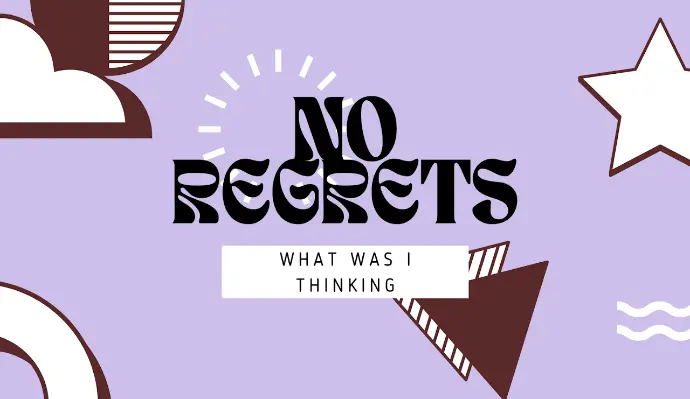Intro
Our goal may be No Regrets and we may apply some of the strategies we have covered over the past two weeks. But the reality is that we are still going to have some “good ideas” that end up being regrets. The natural tendency is to ask how this happened? “What was I thinking?” Conducting an investigation of things when they go wrong is a really good idea and can help us learn and have fewer future regrets. However, how we ask the question, “What was I thinking?” matters a lot!
My Thoughts
Even as you read the question, you can probably hear the tone of voice. There’s an edge of accusation. It’s not really a question seeking knowledge. It’s a question assigning blame and judgment. It often really means “How could I have been so stupid? I’m such an idiot!” or some version of that which you may recognize in your own head.
When we ask the question as an accusation, it produces shame which can be understood as an internalized sense of inadequacy and rejection. When we give ear to the voice of shame, our regrets move from mistakes to character assassinations. Shame wants to isolate us and believe lies about our value and connection with others. When regrets lead to internalized shame stories, we end up weaker expressed in being angrier, or sadder, or more anxious.
But the question: “What was I thinking?” is the right question. However, we have to be able to ask it not with judgment but with genuine curiosity. It starts with taking time to give yourself a little grace. Acknowledge that you are human and the humans don’t get it right every time. Be patient with yourself and you would be a good friend. Then move into considering the question of how this happened! And while it can be done alone, it is often best to go back to last week and find others with whom you can talk through what happened, what you were thinking and how to think differently in future situations. When we interrogate our decisions and results through a lens of curiosity, we learn, grow stronger and feel better about ourselves.
Conclusion
In this case, we can say not so much No Regrets, No USELESS Regrets! Ask older people and they will tell you that some of the best things they have learned and changed about themselves through life came as a result of learning from mistakes. Never waste an opportunity to learn, get stronger and more wise. You won’t regret it!
